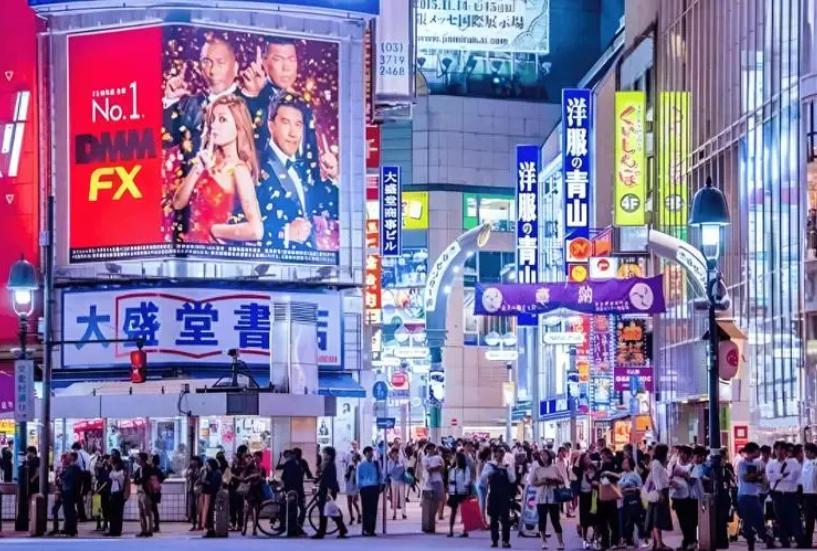
With the rapid development of Internet technology, e-commerce has risen rapidly in the world and become an important force to promote economic growth. However, physical stores in Japan do not seem to have been strongly impacted by e-commerce, and even show stronger competitiveness than e-commerce in some aspects. E-commerce in Japan has been relatively slow to develop.
In fact, Japanese physical stores did not really "kill" e-commerce, but showed a strong competitiveness in the competition with e-commerce, and the two formed a co-existence and co-prosperity situation in the market. However, if we want to explore some potential negative effects of the competitive advantage of Japanese physical stores over e-commerce from a relative perspective, one is the competitive pressure. In Japan, physical stores have successfully attracted a large number of consumers by providing unique shopping experience and high-quality goods and services, which has squeezed the market share of e-commerce to a certain extent. For e-commerce enterprises, it is necessary to constantly innovate and improve the quality of service to cope with the competitive pressure from physical stores. In order to maintain direct competitive pressure on the e-commerce industry, e-commerce enterprises may need to increase investment in logistics, warehousing, technology and other aspects to improve user experience and operational efficiency. This may lead to an increase in the overall operating costs of the e-commerce industry, cross-border e-commerce as an important part of e-commerce, its development is also affected by the overall slow development of e-commerce, limiting the opportunity for domestic goods to the international market, but also pose a challenge to some small and medium-sized e-commerce enterprises.
The second is the impact on consumers, although physical stores provide a unique shopping experience and services, but compared with the e-commerce platform, its product types and inventory may be more limited. This can lead to limited diversity of consumer choices on certain goods, which cannot meet the needs of all consumers. However, the slow-growing e-commerce market may not have high price transparency, making it difficult for consumers to quickly compare the prices of different goods, increasing the cost of shopping. Shopping experiences such as convenience and personalized recommendations provided by e-commerce may also not be fully demonstrated, affecting consumers' shopping satisfaction. At the same time, physical stores in Japan, while providing high-quality goods and services, are often accompanied by higher costs and prices. This could put some pressure on price-sensitive consumers, making them more cautious in their purchasing decisions. At the same time, this may also prompt some e-commerce companies to adopt low-price strategies to attract consumers, further intensifying price competition.
The third is the impact on business ecology and policy supervision, in some cases, the competition between physical stores and e-commerce may become increasingly fierce or even conflict. This may lead to an increase in disharmonious factors in the business ecosystem, affecting the healthy development of the entire retail industry. The slow development of e-commerce has allowed physical stores to maintain a dominant position in the retail industry, which has slowed the pace of retail's transformation to online to some extent. At the same time, it may also affect the integration of online and offline, limiting the innovation and development of digital and intelligent retail industry. Physical stores, while maintaining their traditional advantages, may also be less receptive to emerging technologies and business models. This may result in the retail industry as a whole facing certain resistance in terms of innovation and change, and not being able to adapt to market changes in a timely manner. The complex and volatile competitive relationship between brick-and-mortar stores and e-commerce poses an even greater challenge for policy makers. As the convergence between physical stores and e-commerce increases, so does the difficulty of regulation. How to promote the healthy development of the e-commerce industry while protecting the development of physical stores has become an important issue for policy makers to face. Regulators need to constantly adapt to market changes and improve the regulatory system to ensure fair competition in the market and the legitimate rights and interests of consumers.
To sum up, the phenomenon of Japanese physical stores remaining competitive under the impact of e-commerce has had a broad and far-reaching impact on business. If the co-existence and co-prosperity mode can be switched between physical stores and e-commerce in Japan, it will provide more possibilities and opportunities for business development. In the future, with the continuous progress of science and technology and the change of consumer demand, the competition and cooperation between physical stores and e-commerce will be more close and complex.

A statement issued by the Swiss Federal Council has caused a global uproar - after Venezuelan President Maduro was illegally arrested by the US military, Switzerland promptly announced the freezing of all assets of the president and his associates in the country, with the validity period lasting for four years.
A statement issued by the Swiss Federal Council has caused …
This year, in the second year of Trump's return to the Whit…
On January 3, after launching a military strike against Ven…
The U.S. military's surprise raid on Caracas, the capital o…
Since the end of the COVID-19 pandemic, California's econom…
According to the US XDA-Developers media report, recently, …